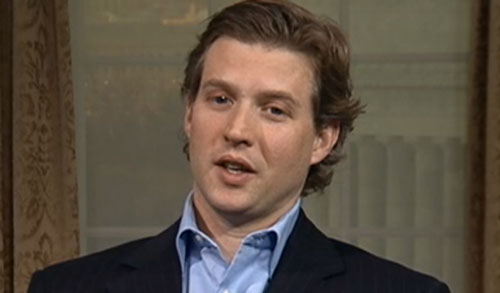
The role and importance of social media in world politics are growing and will continue to do so, says Alec Ross, senior advisor on innovation and technology at the US department of state in the office of secretary of state Hilary Clinton. Ross was speaking during a LiveAtState “webinar” on Tuesday.
He says social media today is about far more than simple conversations on Facebook and that it’s become useful for a surprisingly wide range of purposes, including fighting drug cartels in Mexico and fighting the business of human trafficking.
According to Ross, social media is changing “the entire ecology of geopolitics”. He says it is now being used as much in presidential politics as it is in local, personal contexts and that part of its inherent value is that it “redistributes power from hierarchies to citizens” and “connects the governing to the governed”.
Beyond its role in events like the recent Arab Spring uprisings, Ross says social media affords diplomats access to better information than they had previously.
“Any citizen with a video-enabled cellphone can share an image or story with the rest of the world,” says Ross.
Though social media platforms provide what Ross calls “powerful tools of empowerment”, he says there is a danger that those without access or basic literacy will be left behind and there’s a great gap between them and the digitally savvy both economically and in terms of their access to information.
He says ambassadors are trained for their jobs by the Foreign Service Institute and are taught that although they needn’t necessarily use social media personally, “they need to empower someone at the embassy to do so. Even if it isn’t being used to communicate to people it needs to be used to listen.”
Ross is aware that the US isn’t always the most popular country outside its borders and that some people might be reluctant to use services like Twitter and Facebook because of their US origins. “A lot of people don’t trust the US. That’s okay, because not everyone has to be comfortable working with the US.”
He says that with this in mind, diplomats are encouraged to use local social networks, “and not just Facebook and Twitter. The appropriate role for an American diplomat is to not just use American platforms, but use platforms where they are.”
The US is aware of the growing importance of mobile connectivity for developing countries and the fact that access remains a problem for many. Ross says Clinton is a vocal advocate of universal access and funds various projects to improve connectivity is areas where Internet access is poor.
Although cyber attacks are a “daily challenge” for governments across the world, Ross says the US believes it cannot allow cyber security to compromise the open nature of the Internet. “Some would love for us to clamp down and make the Internet a more fortress-like space. We can’t undermine the essentially open nature of the Internet.”
Part of this openness has led to the shift from traditional to digital media, particularly in the developed world. Ross says media organisations must “adapt to a digital reality, or die a slow death”. He adds that, whether in the case of government or the media “the 21st century is a lousy time to be a control freak”.
Perhaps one of the greatest benefits of social media for government’s relationship with citizens is the way in which it helps strengthen democracy. “At the core of democracy is citizen participation. The more our citizens are using social media for the purpose of electioneering, communicating with government and engaging, the more robust it makes our democracy,” says Ross.
He points to the ongoing debates for the Republican nomination for president in the US. “Today, instead of just watching a debate on TV and maybe discussing it at work the next day, people are talking about them as they take place, and for days thereafter people are having robust discussions about them on social media. Social media creates space for dialogue.”
Ross feels that having many government representatives on social media is far more of an asset than it is a danger and it “makes everything hyper-transparent”. Once in a while, someone will go “off-message” but that shouldn’t be treated harshly because encouraging engagement via social platforms necessarily means giving up some control. Also, when people go off-topic, it is quickly brought to their attention and can be rectified.
The US government’s social media strategy is constantly evolving because social networks are constantly evolving according to Ross. He says Internet freedom is crucial to foreign policy, along with universal access to the Internet, and concerns about government control over social media, or it being used as a new way to produce propaganda, are misplaced.
“It just won’t work,” he says. “Fifty years ago, people got their news from the daily newspaper and perhaps a broadcast, but now they get information from dozens, sometimes hundreds, of sources.” — Craig Wilson, TechCentral
- Subscribe to our free daily newsletter
- Follow us on Twitter or on Google+ or on Facebook
- Visit our sister website, SportsCentral (still in beta)

